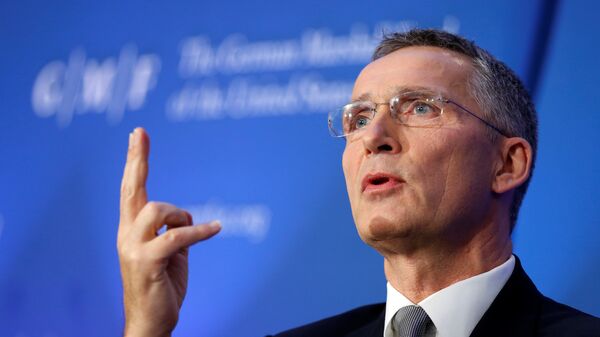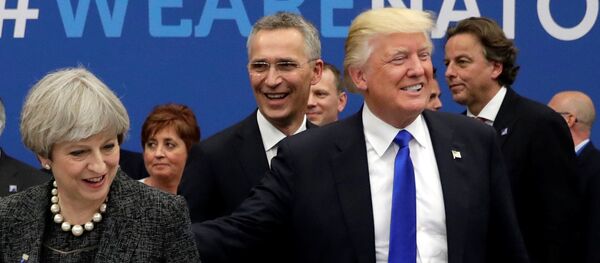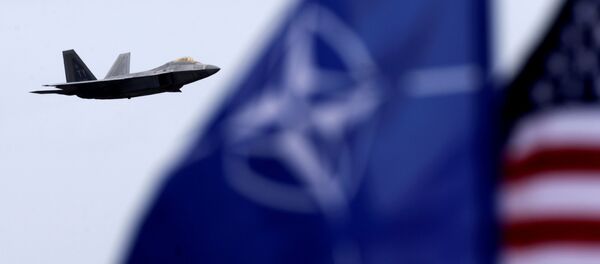WASHINGTON (Sputnik) — On Thursday, NATO Secretary General Jens Stoltenberg said in a briefing that the alliance will join the US-led coalition to defeat Daesh, which will consist of air-to-air refueling and intelligence sharing, but not deploying ground troops.
"It will send a ‘strong political message’ that NATO is still in the business of sending ‘strong political messages,’" retired Canadian diplomat Patrick Armstrong said.
University of Rhode Island Professor of Peace Studies and Non-Violence Nicolai Petro told Sputnik NATO lacked the military strength and political influence to make any significant contribution to the ongoing struggle to destroy Daesh.
"If NATO had any contribution to make to the resolution of the Syrian conflict, it would have already made it," he said.
Stoltenberg was speaking from weakness, not strength and his comments revealed a very weak and badly divided alliance, Petro observed.
"This is a purely rhetorical statement of support, far short of the commitment that the Trump administration had hoped for, but already a strain on European unity. Stoltenberg's explicit disavowal of combat operations speaks volumes," he said.
Later in his briefing, Stoltenberg said NATO's expanded role would provide a coordinating platform among member states in addition to displaying what he described as a strong political message of unity.



